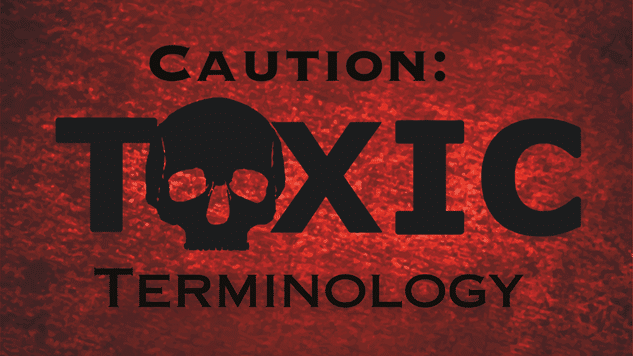One of the most common misconceptions regarding abuse is this, unless you can see it, then it is not happening. We assume that if someone is being abused, the first sign will be bruises appearing on flesh, people coming into work with arms in slings … below is a chart of what domestic abuse can display itself.
The Domestic Abuse Act 2021 outlines the following behaviours as abuse:
physical or sexual abuse violent or threatening behaviour controlling or coercive behaviour economic abuse psychological, emotional, or other abuse.
This list shows how broad a subject domestic abuse is, and it simply isn’t a case of simply looking for a bruise to prove whether a man has been abused. The Mankind Initiative which runs helplines, based in England publish their statistics once or twice year, their most recent report covered March 2021 until March 2022 . The majority (95.5%) of male victims calling the Mankind helpline reported that the perpetrator was a female partner or ex – partner. The most common types of abuse reported by victims were:
- Psychological Abuse (92.6%)
- Coercive Abuse (79.4%)
- Physical Abuse (68.6%)
We need to realise that the most common form of abuse regardless of gender will be psychological/emotional abuse. Why is this the case? Because every form of abuse has a psychological element to it.
Some abusive women may enjoy tearing down a man’s character, and his achievements and they will use as many mediums as possible of verbal abuse to do so. In her book, Abuse of Men by Women: It Happens, It Hurts, And It Is Time to Get Real About it, Ann Silvers lists a comprehensive list of the multiple ways psychological/emotional abuse can happen.
- threatening
- controlling
- demanding
- histrionics
- fault-finding
- biting sarcasm
- name-calling
There is the other side of it when men are just outright called abusive names. Some women will use body shaming comments as just one of the many personal criticisms that female perpetrators will use to try and make their victim feel ugly in some way.(1)
“Just as assuredly as physical violence assaults the body, verbal abuse assaults the mind and spirit, causing wounds that are extremely difficult to heal.” —
Beverly Engel, The Emotionally Abusive Relationship
Lee Marks, in his book Break The Silence – A Support Guide for Male Victims of Domestic Abuse, puts this case forward regarding the types of verbal onslaughts a man can face can also involve critiquing the sexual performance and the size of the manhood used (what is important to remember is that stress and fear has a massive effect on a few functions of the body, sexual desire and performance included.) A victim of domestic abuse is under stress 24 hours a day, 7 days a week, so it would hardly be surprising for this to happen from time to time.(2) A verbally abused man, who is being called these things, having his manhood ridiculed and then on top of that pressure there is the very real fear that if he can not please his partner she probably is looking to be satisfied somewhere else.
“If I cannot inspire love, I will cause fear.”
Frankenstein, Mary Shelley
Sometimes you may hear “if you don’t do this, you’ll be sorry!” This sort of phrase can strike fear in anyone. Men or women. It is the most common used phrase to strike fear into someone. No matter what the X is, the threat of being punished lingers for a long time. It makes the relationship no longer about love but about performance-based rewards.
Ann Silvers, also in her book “Abuse Of Men By Women,” suggests that women will use many different verbal threats such as bringing up past failures “You and I both know that you haven’t had a drink in two years, but you got that driving disqualification, and if we get divorced I’ll have an easy time convincing the court you can’t be trusted with the kids!” or using her past mistakes as a way to manipulate to cause fear such as “If you don’t forget about the affair I had, I’ll divorce you and good luck seeing the kids,”
For a man who is coming under attack from these forms of abuse there will be a sense of no self-confidence. He would have spent a lot of time second guessing himself, not sure of how to speak in public anymore he will have to make sure he makes everyone happy. He will laugh spontaneously for no reason at things that just aren’t that funny, he will have outbursts of anger born out of fear.
Martyrdom is a subject that Ann Silvers introduces us to, and she says that “Martyrdom is a threat made by proxy The threat is: ‘I’m carrying such a heavy burden; if you express a problem with me, I’ll fall apart.’” The martyr’s plan is to appear to be worn down by self-criticism that her partner convinced he cannot point out issues that he is struggling with.(3)
So how do we deal with a man who has no confidence, ashamed of what he looks like, afraid to speak out of turn or even in turn, a man who will not understand banter, whose whole life will be based upon this truth to him “if I don’t do this well, I can lose it all!”
This is trauma, and trauma is a wound that needs to be healed Some wounds can heal quickly, some can’t. Verbal abuse leaves an unseen mark and as a result a quick fix does not work, and we will not see a quick healing take place.
Jonathan’s House will always take the long game approach when it comes to this sort of trauma. It is not just the simple case of a pat on the shoulder, and it will be ok. No, it will come in spending time with the abused person, and re affirming who they are, through counselling yes but also through companionship. Spending time with people who will speak life. It is not about reprogramming a person’s mind; it is about introducing a new way of thinking about yourself and doing it in such a positive new way it overtakes the negative way of thinking. Helping these men to feel confident no matter what the room is they are walking into, knowing that they are perfectly made, they aren’t mistakes, they have purpose, and their identity comes from their Creator and not from the unloving banter of someone who never knew them!
If this has triggered anything inside you, or maybe you know someone who needs support in this area, please click on the speech bubble and there will be someone right there ready to talk with you, and if needed, to pray with you.
(1) Marks, Lee. Break the Silence – A Support Guide for Male Victims of Domestic Abuse (p. 39). Austin Macauley Publishers. Kindle Edition.
(2) Marks, Lee. Break the Silence – A Support Guide for Male Victims of Domestic Abuse (p.38- 40). Austin Macauley Publishers. Kindle Edition.
(3) Silvers, Ann. Abuse OF Men BY Women: It Happens, It Hurts, And It’s Time to Get Real About It (p. 50). Silvers Publishing, LLC. Kindle Edition.




